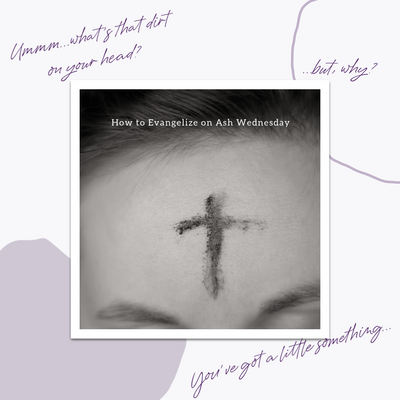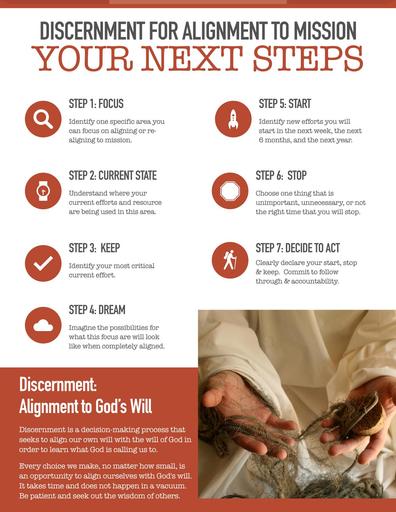The Making Disciples Today Blog has reflections to help you grow in your journey of missionary discipleship, reviews on recommended Catholic evangelization resources, and practical insight on how to evangelize in your daily life.
- Details
- Written by: Burning Hearts Team
How Accompaniment Can Help You Grow This Lent
The forty days of Lent can seem like a long time, especially if one is giving up a favorite food or video game. It's helpful to have a friend to keep us going. He or she can encourage us, challenge us, and pick us up if we falter. In fact, that kind of accompaniment - a holy friendship developed out of mutual love for one another and a desire to walk with one another into deeper relationship with Jesus - is the heart of evangelization and discipleship.
- Details
- Written by: Kristin Bird

Lent calls us deeper. Deeper into prayer. Deeper into fasting. Deeper into generosity. Lent calls us to a generosity that stretches us beyond comfort, beyond obligation, beyond the extra we happen to have.
When Jesus watched people putting money into the temple treasury, He didn’t praise the ones who gave large sums out of their abundance. Instead, He pointed out a poor widow who dropped in two small coins—everything she had to live on.
"Truly I tell you, this poor widow has put more into the treasury than all the others. They all gave out of their wealth, but she, out of her poverty, put in everything—all she had to live on." (Mark 12:43-44)
She gave everything. And that’s exactly what Jesus asks of us.
- Details
- Written by: Kristin Bird

Evangelizing Answers to Every Catholic's Favorite Ash Wednesday Question
We don't presume to have the right response for every situation, but there are a few suggestions below that might help give you a foundation whether the questioner is a stranger just trying to be helpful...
- Details
- Written by: Kristin Bird

Two Parishes, Two Paths
I recently had the opportunity to work with two different parishes, both filled with faithful, dedicated people who love their Church. But their approaches to ministry—and more importantly, to evangelization—couldn’t have been more different.
One parish’s leadership made a bold decision: they committed to freeing up their staff and clergy’s time so they could focus more explicitly and intentionally on evangelization priorities that lead to true parish renewal. Rather than being consumed by administration, their goal was to build a culture where evangelization wasn’t just another task—it was the heart of their mission.
They asked tough questions about how their parish could shift from maintenance to mission. They restructured meetings, re-evaluated programs, and asked, “Does this serve our mission to make disciples?” before committing to anything new. They weren’t just trying to keep things running; they were actively creating a culture where every baptized person understood their role in evangelization.
The other parish, however, was stuck in the weeds. Their leadership was exhausted from trying to manage internal complaints, keep existing programs running, and maintain a fragile sense of peace among those already in the pews. Instead of focusing outward—on reaching the lost and forming missionary disciples—they were caught up in being a Church focused on Pope Francis calls “self-referential navel-gazing.” Their energy was spent keeping those who already belonged happy (or at least minimizing complaints), rather than equipping and sending people to share the Gospel.
Both parishes were filled with good, faithful people. But only one had truly the mission of evangelization.
So I have to ask: which kind of parish are we building?

